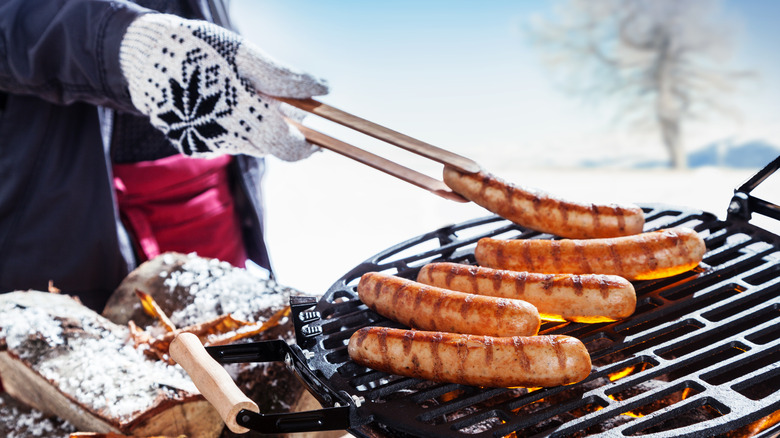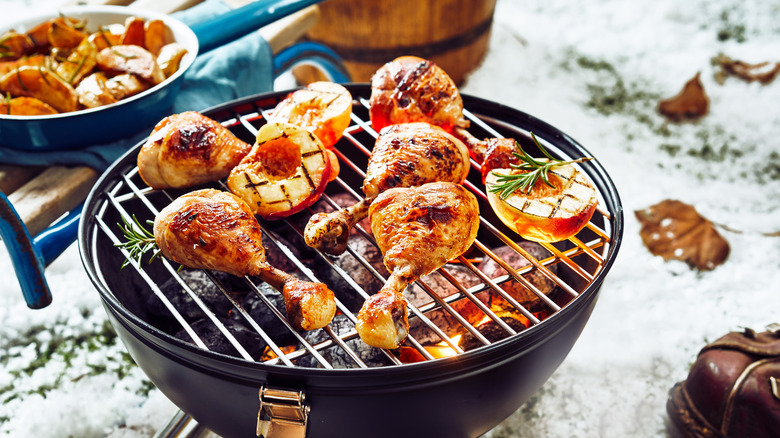The One Mistake You're Making When Grilling In The Winter
Have you ever tried grilling outdoors in the wintertime? If you live in Phoenix, Miami, or Los Angeles, it's pretty much the exact same experience you'd have grilling at any other time of the year. What we're talking about here, though, is the whole "there's three feet of snow on the ground but we're still gonna tailgate at Lambeau Field" kind of grilling that features in nearly every meme about the great state of Wisconsin. If you're a seasoned winter griller, you already know not to forget the knit beanie (Packers beanie, for preference!) as well as insulated boots and gloves, but your grilling technique may also need a few wintertime tweaks.
Mashed spoke with Shawn Hill, aka The Grilling Dad, a man who says he's "grilled everything from hamburgers and hot dogs to smoking a brisket for over 24 hours during snowstorms." He advises that when grilling in cold temps, you'll need to increase any recipe's estimated cook time by 50% to 100%, depending on how low the mercury goes. He also reminded us that you really need to cover your grill or store it in the garage in wintertime. If you don't, Hill says "Your grill will look like a 5-star hotel to rodents who are looking for a place to sleep." If barbecued mice do not appeal, make sure that the grill cover is locked down tight! The biggest mistake you're probably making when you cook outdoors in wintertime, though, may involve the cooking temperature.
Low and slow is the way to go for wintertime grilling
While it might stand to reason that colder days require higher grilling temperatures, Hill says that's actually not the case. "In the winter, " he tells us, "I prefer to go lower temps for longer times to offset the weather and not force the grill to work harder to get high temps." As he explains it, "When you open your grill to put your food on, the grill loses a lot of heat and it takes a while to get back up to temperature. This happens, again and again, every time you open the grill to season, flip, or check for doneness." Needless to say, the higher the grilling temperature, the harder the grill will have to work to heat back up again.
Hill advises keeping the grill lid closed while you cook as this will help maintain the temperature. He also suggests using one of those remote sensor types of thermometers such as the kind where you can check the temps via a phone app. Using such a thermometer for your meat, he says, will "ensure it cooks to your preferred doneness without having to open it up repeatedly to check if it's done or not."
One additional caveat Hill issues is in regard to fire safety. "I've seen countless horror stories of people grilling too close to their homes or in the garage to try to stay warm," he tells us, adding "Safety first, good food second."

